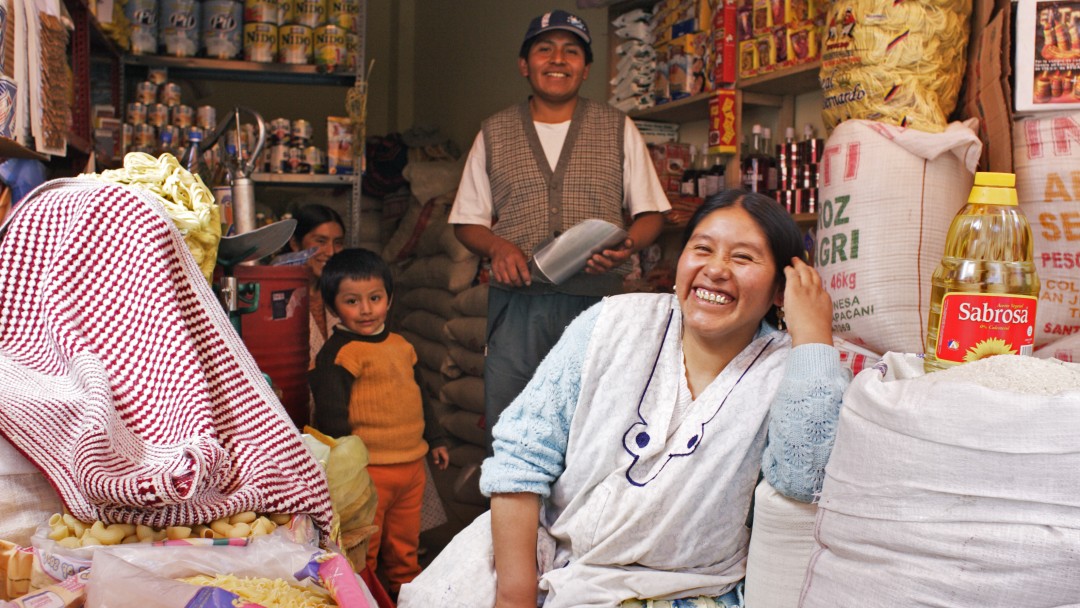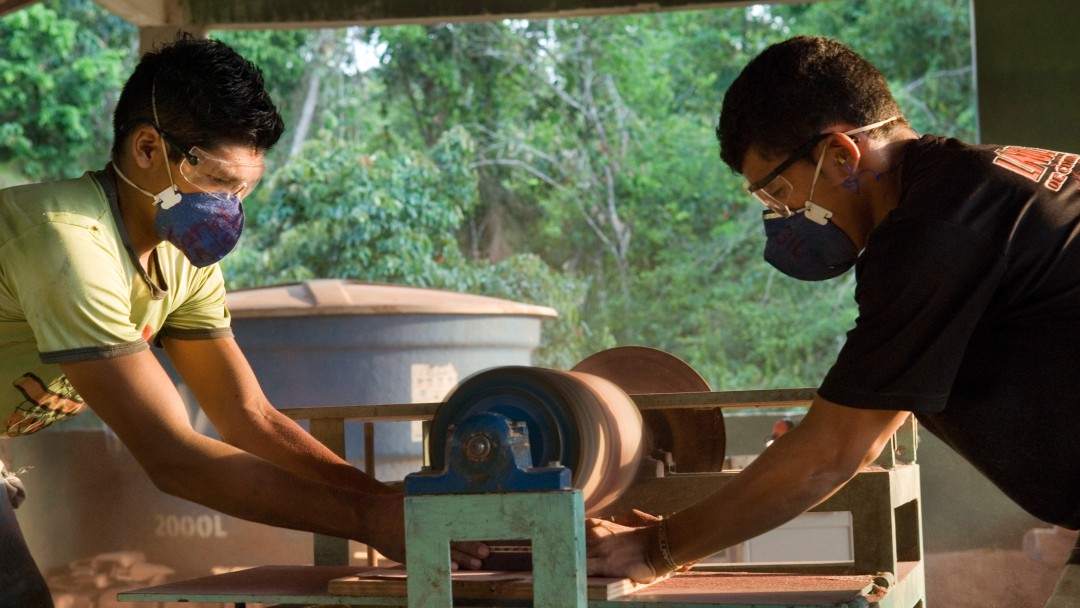News from 2020-07-20 / KfW Development Bank
Maintaining jobs despite corona and strengthening resilience

On behalf of the German Federal Government and the European Union KfW has been supporting small and medium-sized enterprises in Central America for a long time. In response to the corona pandemic the Central American Bank for Economic Integration (BCIE) launched a Corona Support Programme in the amount of USD 2 billion, in which KfW is participating with USD 100 million.
From Charlotte Schmitz
"The automatic reaction of any entrepreneur to a setback caused by an event beyond his control is an attempt to rebuild," says Paul D. Steiner, president of the El Salvador CONAMYPE (Comisión Nacional de la Micro y Pequeña Empresa). Thanks to the help of BCIE, KfW and the EU this is now possible. Steiner stresses that micro and small enterprises account for about 98 percent of the country's businesses and 70 percent of jobs. "They can not only tackle reconstruction, but also strive for an innovation that will strengthen them in the long term," says Steiner. Not only in El Salvador, but in most Latin American countries, mini-companies make up the bulk of the economy: Shops for the residential area, kiosks and small craftsmen are an everyday sight.
In Nicaragua, José Adrián Martínez Siles founded the Horeb Comercial company in 2014, which today employs 20 people. Horeb produces snacks and chips based on banana, yuca, corn, peanuts and local products such as water bread root (taro). Martínez uses traditional recipes and relies on regional and organic ingredients. The snacks are sold in supermarkets and chain stores.

The founder is grateful for the help of the BCIE: "We were advised in the preparation of the business plan, were able to establish contacts with other small businesses and sharpen our business model". In this way niches could be identified and the product range strategically developed. Martínez is already looking to the future: "Because we can now present a business plan, the doors to other financial institutions are also opening." The Corona pandemic has of course affected his market. During lockdown times, fewer snacks were sold. But Martínez also sees the positive effect of BCIE's support here: "Despite the difficult times, we were able to consolidate financially and even hire more employees." He points out that Horeb Comercial was able to purchase protective equipment for the employees. "We are proud to do our part to keep our employees in the workplace and thus ensure the welfare of their families."
On behalf of the German Federal Ministry for Economic Cooperation and Development (BMZ) and the European Union (EU) KfW is participating in BCIE's emergency aid programme with a total volume of approximately EUR 100 million. Among the measures being promoted under this programme is the "MIPYMES Verdes" programme, which KfW is already supporting on behalf of BMZ and which is now being made more flexible in its orientation in order to also cushion the consequences of the Corona crisis. Previously it provided loans for the energy-saving transformation of small enterprises, but now it is being made available to all enterprises for a broader range of investments. Borrowers commit to keeping at least 70 percent of their employees in employment despite the pandemic.

Share page
To share the content of this page with your network, click on one of the icons below.
Note on data protection: When you share content, your personal data is transferred to the selected network.
Data protection
Alternatively, you can also copy the short link: https://www.kfw-entwicklungsbank.de/s/enzBWrMC.CSAA
Copy link Link copied